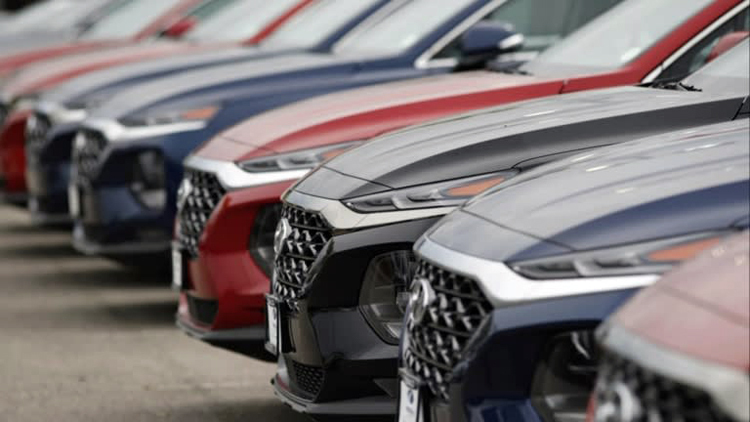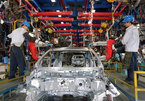On November 11, the Government Office released a notice about the Deputy Prime Minister Trinh Dinh Dung’s conclusion at the meeting discussing solutions to develop the automobile industry, which gathered representatives of ministries, the Vietnam Automobile Manufacturers' Association (VAMA), and enterprises.

Dung assigned the Ministry of Finance (MOF) to join forces with the Ministry of Industry and Trade (MOIT) and the State Bank of Vietnam (SBV) to suggest policies on tax and credit to facilitate the development of the automobile and supporting industries.
One of the ‘bottlenecks’ that hinders the development of the automobile industry is tax policy. The current luxury tax is reported as not attractive enough to encourage enterprises to expand domestic manufacturing and assembling.
Meanwhile, the automobile industry is defined as an important industry in the economy, which serves as a driving force for industrialization and modernization, helping Vietnam escape the middle income trap.
A source said that a working group on the automobile industry will be set up with members from MOF, the Ministry of Planning and Investment (MPI), MOIT and SBV. The working group will be in charge of building policies on tax and preferential credit for the automobile industry.
One of the important policies to be considered is the luxury tax. The current high tax rate is believed to lead to a restriction in using cars, which makes it difficult for the automobile industry to develop.
The working group will also work on policies to give incentives to enterprises which make investment in manufacturing car parts. There will also be preferential credit packages for automobile supporting industries (car part manufacturing) and for buyers of domestically-made cars.
Prior to that, in Resolution 115, on the solutions to promote supporting industries dated August 6, 2020, the government asked MOF to amend the luxury tax policy and submit the draft amendments to the National Assembly’s 10th session. However, to date, the draft of the new policy has not been submitted.
The proposal on amending the luxury tax law, under which the dometically made car parts are not counted when calculating taxable value, was made by MOIT in 2017. However, the tentative tax policy has not occurred yet.
Analysts say that enterprises have to wait too long for policies. While Vietnam has opened the market widely to imports, its ministries are still discussing the solutions to support the domestic production.
MPI has also questioned why the solution on luxury tax proposed by MOIT a long time ago still cannot be implemented. If the solution is applied, car prices would decrease by 10-30 percent.
Tran Thuy

Vietnam to change tax, customs policy to encourage automobile industry
Developing an automobile industry is a part of the strategy to turn Vietnam into a modern and industrialized country by 2030. More preferences for the industry will be offered in the time to come.

Gov’t support aids automobile industry
The domestic automobile industry was forecast to thrive, given the Government’s supports in tax policies for imported automobile components coupled with the increasing income of citizens.